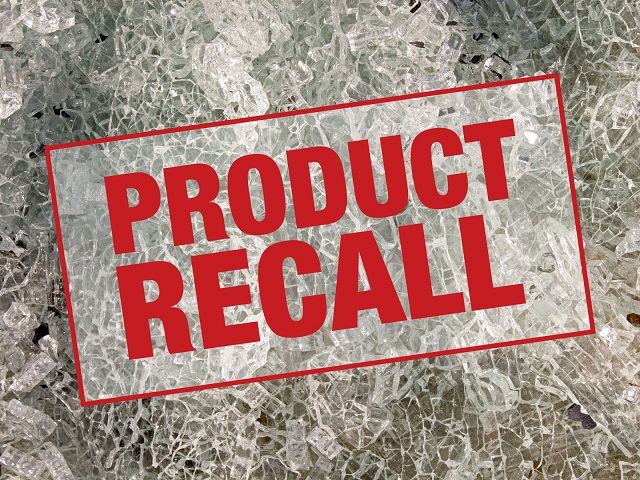Do you know what your company would do if one of the products that you manufacture was recalled tomorrow? Is there a procedure already in place dealing with this situation, or would you scramble to come up with a plan? Most companies have a fire or flood evacuation procedure rehearsed in case of these disasters, but no plan in place for dealing with a major recall.
A product recall is when a product is determined to be faulty or contaminated in a way that could potentially cause illness, injury or death to those who are using it. The product is taken off the market and customers are informed so that they can return their products for a refund.
If you are one of the companies that doesn’t yet have a plan for this situation, the best time to figure it out is sooner rather than later. Waiting until disaster actually strikes is a bad idea and can make it much more difficult to handle the recall. A major product recall due to a safety issue can be an absolute nightmare for a company and if it is handled poorly it can ruin the reputation of the company for many years or even entirely.
There are product recall management companies out there that can help you to come up with a plan that you can follow to deal with a recall. A product recall company can also help a business through the process so that they come out the other side with the best possible results and their reputation still intact.
Reasons to Plan Ahead
So what are the advantages to having a system in place in case of product recalls? Here are some of the reasons why this an important strategy:
Your Company is Immune from Recalls
No company is safe from the risk of a product recall- it can happen to anyone. Of course, if you have high standards of quality control at your manufacturing plant and excellent safety testing you will greatly reduce the risk of your products being contaminated, dangerous or faulty. But there is still the small possibility that something might go wrong – mistakes can happen. Companies that don’t make a plan for a recall because they think that it will never happen will be the ones that struggle most when it does. Remember, the Titanic was thought to be unsinkable but we all know how that turned out.
The Faster You Respond, the Better
If your products are causing illness, injury or death you want to be able to get those items out of the hands of your customers yesterday. When you already have a strategy for managing a recall figured out, you can simply launch that strategy and hit the ground running. If you don’t have a plan, you will waste valuable time trying to figure out how you will approach the situation – time in which more people could be falling victim to your dangerous products.
You Can Appoint a Team
When you are planning ahead “just in case” of a product recall, make sure to appoint a small team of your senior executives and train them to manage communications if this crisis ever occurs. This helps by ensuring that everyone knows what they are supposed to be doing in the event of a recall. The team of well-trained experts will be able to organise and mobilise the response as quickly as possible.
Take Responsibility
Usually public backlash over a recall occurs because the company appears as if they don’t care that their product is causing serious illness or injury to customers. The perception of the company “not caring” is due to the lack of action on the part of the organisation. When you already have a plan in place and you start to react immediately, you are less likely to be accused of not caring about the well-being of your customers. Being proactive minimizes public backlash and reassures your customers that, although you made a mistake, you are dealing with it in the best and fastest way possible.
These are just a few of the main reasons why companies should plan ahead and have a strategy in place for product recalls before they even happen. Having a plan in advance for responding to this situation will make things much easier and will save a lot of time and hassle. A field marketing company can help with developing a plan and carrying it out if your company is involved in a recall.
